These Powerful Projects Got $10,000 For These Photographers
Early this month, Leica announced the winners of its second annual Leica Women Foto Project Award.
Leica has just awarded three talented women photographers $10,000 each. Matika Wilbur, Karen Zusman, and Anna Boyiazis submitted their projects to receive the award. A Leica Q2 was also awarded to each photographer winning the Leica Women Foto Project. Unfortunately, Matika and Anna were unavailable to speak to. But we caught up with Karen to learn more about her work and the impact $10,000 will have on her project.
Phoblographer: Please tell us more about the work you submitted to the Leica Women Foto Project Award. Why was this subject matter important to you?
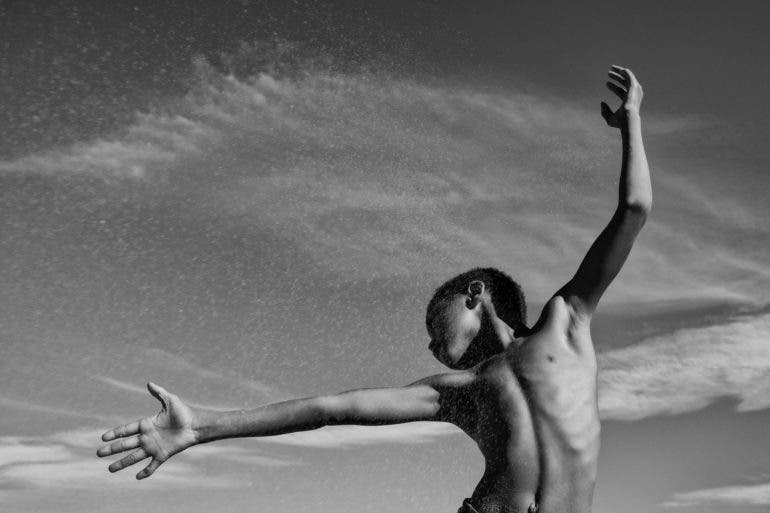
Karen Zusman: The Super Power of Me project is a series of portraits celebrating the incredible beauty and spirit of young black, brown and immigrant lives before the world tells them otherwise. It was borne from months of participating in BLM weekly bicycle protest rides in NYC.
What compelled me most on those rides were the responses of the onlookers. Especially those of the children for whom these protests will ultimately matter most. So I started to photograph young kids of color at Brighton Beach. But the idea for the series didn’t crystalize for me until I sent some of the first photos I took of some children to their Ghanaian father. He wrote back to thank me for giving his kids, “the living proof that they are the superheroes that they always imagined themselves to be.”
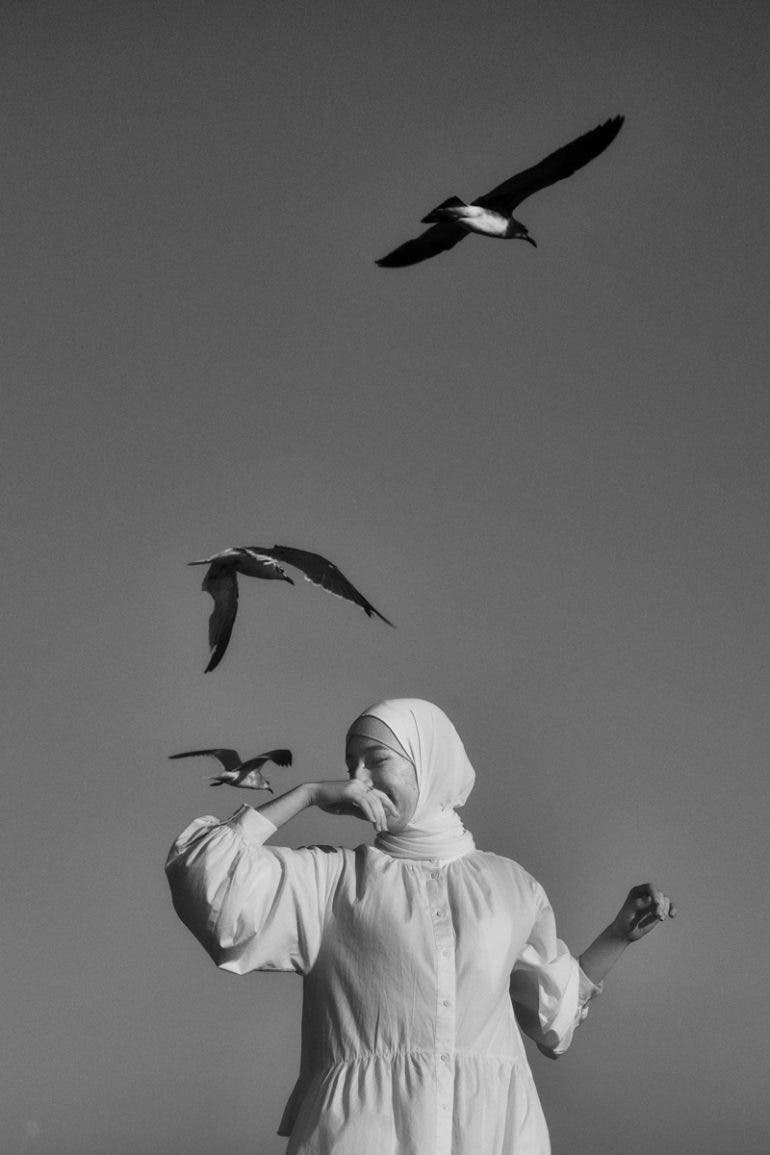
This was an incredible message to receive from this father, and it made me realize the power of these portraits—the impact that purposeful image-making has on how a child sees themself. The second part of the project will be creative workshops to help these children write poem-captions so they have a part in showing the world who they are—in their own voices.
I have an MFA in poetry so it’s doubly meaningful to me that I can use this background to bring this series to life, as well. The project will culminate in a large-scale outdoor exhibit.
Phoblographer: As well as the prizes, the Leica Women Foto Project award gets you widespread exposure. How does it feel knowing so many people will see the stories you’re working hard to tell?
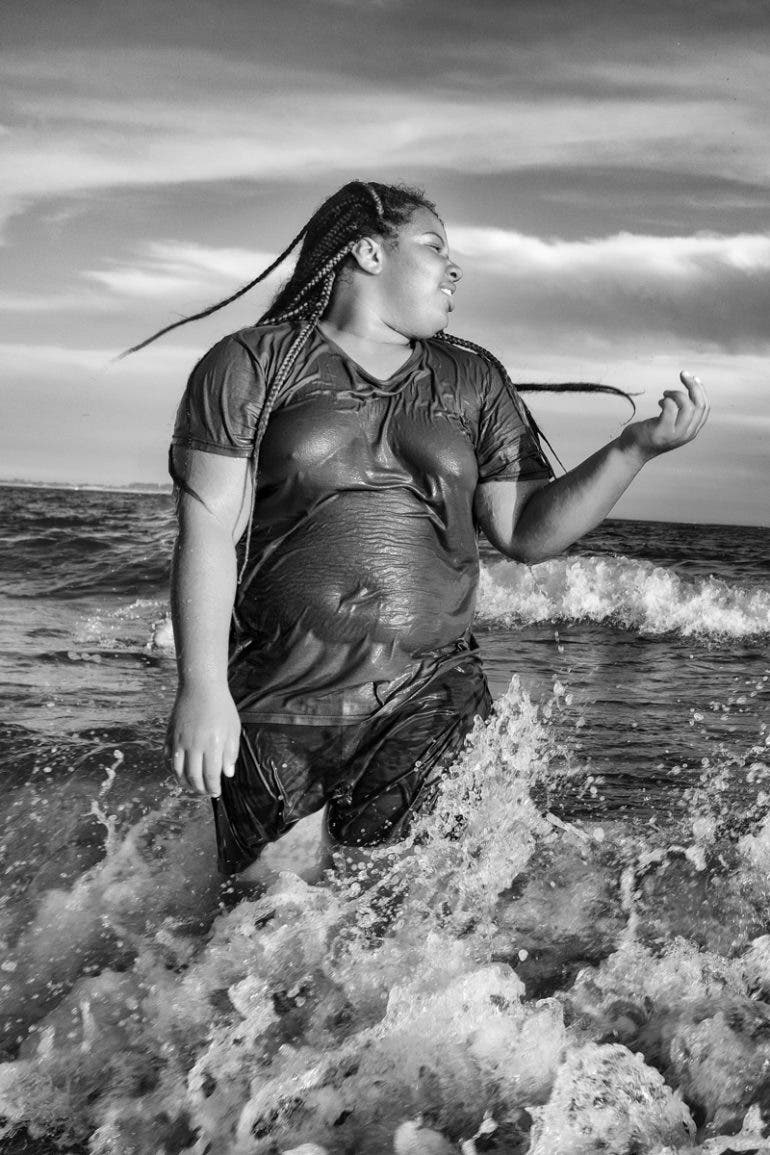
Karen Zusman: It’s truly a privilege to have this platform that Leica Women Foto Project award provides. We’re just at the start so everything I say now is purely emotive, but I can easily imagine that this project will fulfill its potential. Firstly, and very personally, since I’m self-taught in photography, making my living in a very different way—this award gives me huge confidence that my photographic vision is one that merits wide exposure.
As a protest photographer, it’s especially gratifying that this particular work of mine, which I see as an extension of my participation and documentation of those protests, is the first to be brought forth to the world. Because it’s a direct evolution of the consciousness that was expanded through the protests–that we start considering more the impact of systemic racism on our young.
That the Leica Women’s Foto Project clearly agrees with this vision and wants to promote it makes me feel partnered and supported. I’ve never felt that before—it’s an amazing feeling.
Phoblographer: $10,000 is a good chunk of cash. What kind of impact will that have on your ability to continue the work, especially
considering our current times?
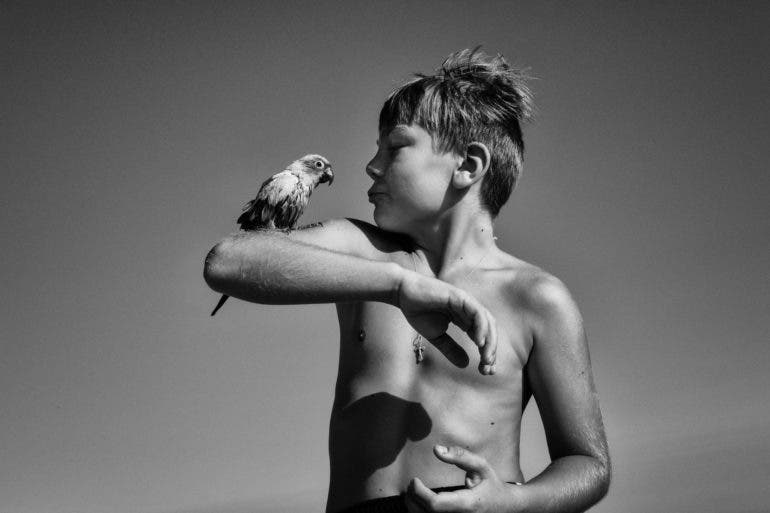
Karen Zusman: I plan to use the funds to help mount this exhibit. I imagine I might have to fundraise more to get it done. But I will see how far this amount can go. Certainly, the award itself will open more doors to me to help get the show installed. Ideally, in an outdoor venue as it was envisioned, so these children can see themselves as these super-powered beings rising up larger than life from their very own communities throughout NYC.
Phoblographer: One of the benefits of awards is validation. What does it do for your confidence when you receive recognition by an institution such as Leica?
Karen Zusman: As mentioned previously, this is a huge aspect of the award for me. I have no formal training and jumped into photography about a decade ago when I was covering human trafficking stories in southeast Asia. I was in the region as a Buddhist meditator—I was neither a photographer nor a journalist at the time, but I saw a need and jumped in with all I had.
Soon after, I realized I needed to learn how to use a camera to accompany the audio I was recording. The fact my first major recognition for photography comes from Leica is incredible to me. Not only do I consider it the most prestigious camera brand, from what I’ve read about the history of the company, the incredible humanity and actions that they extended toward those targeted in the Holocaust, is extremely meaningful to me.
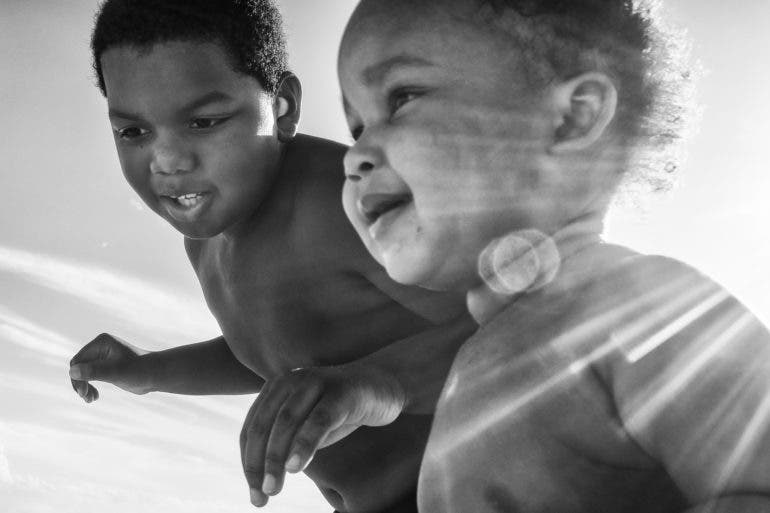
It doesn’t feel as much a brand as an institution, as you said. To be honest, I’m still pinching myself. On the other hand, I do believe the judges looked favorably on my project because I think it unmistakably is borne from a woman’s point of view. As women, our innate instinct is to nurture. I’m not a mother, but I feel strongly that we empower our young people of color. And that we work to further that incredible spark they carry—of strength, spirit and even grace.
My aim is to put that forth in the world in a bold, audacious way—large scale—so as a society we are confronted with these ones we must continue to make the world right for. Now, in many ways, I see Leica as my partner in that. I believe without a doubt that this support is going to make a huge difference for my photography practice.
Phoblographer: From a photography perspective, what is your focus for the future?
Karen Zusman: I would love to continue to create work that comes to me in an organic way, such as this one did. After spending some years documenting in Burma and Malaysia, I started getting into street photography—mostly in Cuba.
I traveled to the island 21 times in four years, and with that body of work I hope to publish a book. But through that experience, and my experience even with this series, I found that what I loved most about photography is getting to connect with people that I photograph and see what we come up with together.
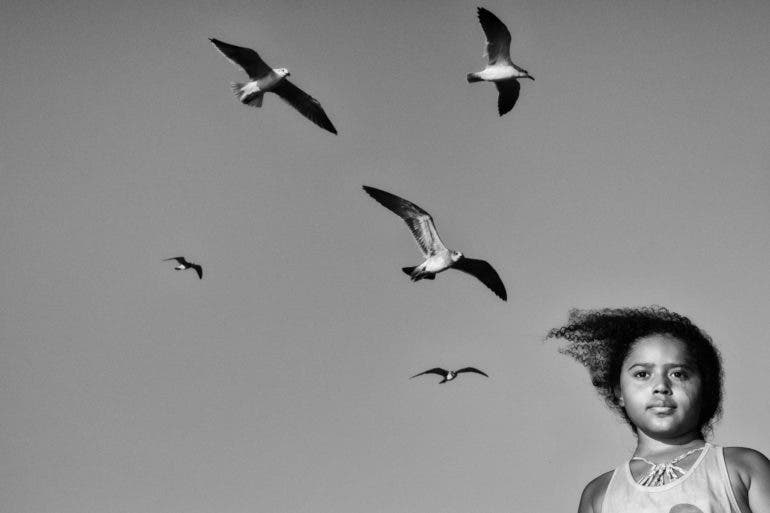
I don’t think most people would consider the images from The Super Power of Me series as street photography, but all of these images were made from chance encounters, and none of it was staged. Although there was some collaboration, some chemistry between those I photographed and me. I love that aspect of co-creation. I hope to keep doing that wherever the medium takes me. And while I’d love to try my hand at some assignments, I’d hate to lose that kind of chemistry or freedom.
I think that’s what makes my images speak the way they do. There’s something that me and those I photograph, tap into—a kind of magical spontaneity. I hope to keep that going even in work that’s more orchestrated. Whether on assignment or just for myself. And lastly, perhaps selfishly, I’d love it if I could start supplementing my income as an advertising copywriter with my photography. I’d like to do print sales, for example. Then I can start to tilt the balance of my working life a little more in the direction of photography. I believe this award can put me on a path to realize all of that.
All images by Karen Zusman. Used with permission